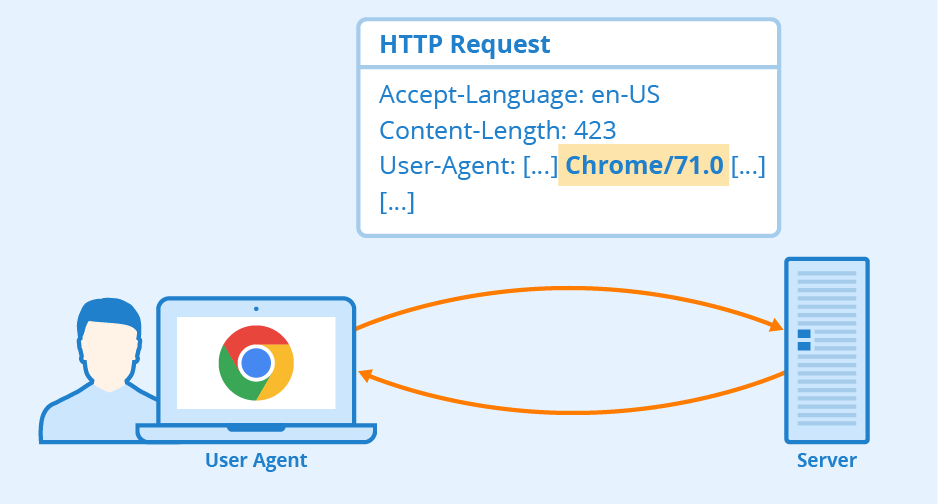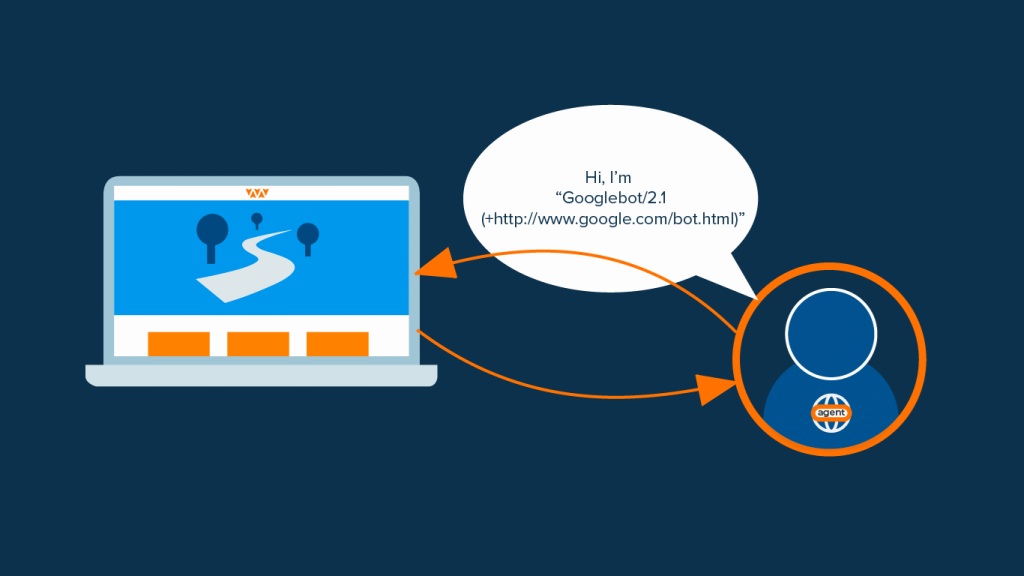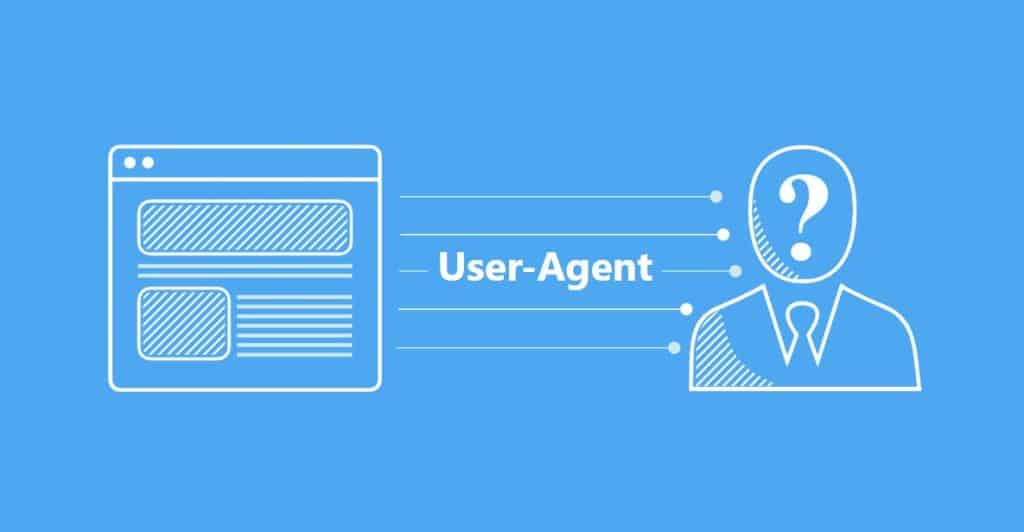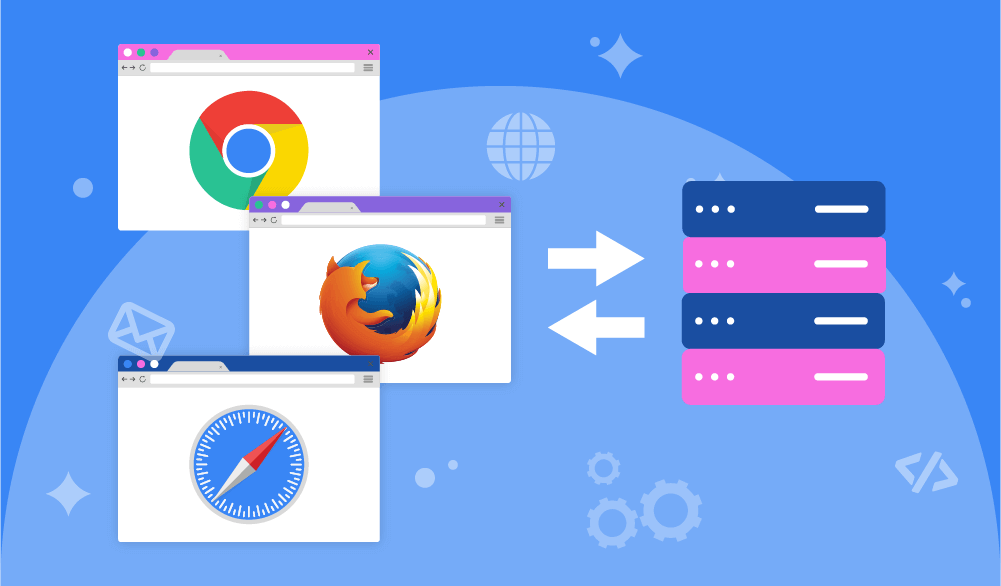We often talk about scraping, and one of the many things we mention is the user agent. If this is the first time you have encountered this term, in today’s guide, we’ll explain what a user agent is and what the most commonly used ones are.
Living in a digitally advanced era, it means that there are certain advantages that we sometimes rely on. As a result of this advancement, some of the online activities we have today are carried out much faster and better than before.
In the olden days, before these services were available to us, we had to do certain activities manually. A good example is web scraping, a process where you gather data from a website. Doing this traditionally by copying and pasting the data means it takes a lot more time, and the chances of making a mistake are a bit higher.
Thanks to the wonders of modern technology today, we have plenty of services that allow us to achieve that much faster and in an error-free manner. These services are called scrapers and are essentially digital robots that do all the work for you. An essential part of these creepers are user agents, a term you may not have heard before, which we’ll be discussing today.
In today’s guide, we’ll cover several aspects of user agents, such as defining what they are, what they’re used for, how they work, and most importantly what are the most commonly used ones today.
What Is a User Agent?

Whenever you open up a browser and enter a website, all you’re concerned about is getting the content on the website and nothing else. Many things are happening in the background that allow you to have this experience, and the user agent is among those.
A user agent is a piece of information that the website receives from your end as it helps it display the website in the most optimal way possible. The user agent contains plenty of information, including which browser you’re using, the operating system version, and if you’re using a 32 or 64-bit version. In addition to this, the website needs a few other pieces of information for you to have the full experience.
What Are the Most Common User Agents?
When it comes to user agents, there are countless combinations. As we mentioned before, a user agent is a combination of multiple information in terms of the device you’re using. Despite the wide range of options, some appear more commonly than others. Rayobyte has made a list of the more popular user agents, and we have outlined them below.
- Mozilla/5.0 (Windows NT 10.0; Win64; x64) AppleWebKit/537.36 (KHTML, like Gecko) Chrome/58.0.3029.110 Safari/537.36
- Mozilla/5.0 (Windows NT 10.0; Win64; x64; rv:53.0) Gecko/20100101 Firefox/53.0
- Mozilla/5.0 (compatible; MSIE 9.0; Windows NT 6.0; Trident/5.0; Trident/5.0)
- Mozilla/5.0 (compatible; MSIE 10.0; Windows NT 6.2; Trident/6.0; MDDCJS)
- Mozilla/5.0 (Windows NT 10.0; Win64; x64) AppleWebKit/537.36 (KHTML, like Gecko) Chrome/51.0.2704.79 Safari/537.36 Edge/14.14393
- Mozilla/4.0 (compatible; MSIE 6.0; Windows NT 5.1; SV1)
Why Is a User Agent Important?

The best way to explain this is with websites that have different layouts for desktop and mobile versions. When you enter the website address, the server gets the user agent information, and based on that, it displays the website for that specific browser. For example, opening a desktop website on a mobile browser isn’t the best experience. If the website sees that the user agent comes from a mobile device, it will display the website in a mobile layout.
Another good example is different versions of browsers, even when we’re talking about desktop websites. Let’s say you have an older device with an outdated browser and want to access a modern website. As long as the website is developed to work on a wide range of browsers and devices, the user agent will tell the server which browser and device you’re trying to access it from and display the website in the most optimal way possible.
It means that if some content isn’t supported on older browsers, the server will either try to display it with an older and supported format, or you’ll get the message that the content cannot be displayed.
Following the example above, we have another one that is a bit more common. We see this with websites with downloadable applications, especially ones available for multiple platforms. The website reads your user agent, specifically the operating system, and displays the page where you can download the application for your operating system.
It’s a similar story with browser extensions. Heading over to the Chrome store from your Firefox browser will reveal that you won’t be able to download or install any of the extensions. This is because the website sees your user agent and knows you’re not using Chrome or a Chrome-based browser.
Why Is a User Agent Important for Scraping?

Certain aspects of scraping are essential to get the most out of it. We often talk about proxies as being the key to any scraping project, but the user agents aren’t far behind in terms of importance.
Whenever you’re scraping, it’s important for the website that you’re scraping data from to be unaware of your activities. This is achieved with scrapers faking each request to the website by doing that with a different proxy each time. This is where user agents come into play,
For each pass on the website where you need to grab a piece of data, the scraper will use a unique proxy and assign a different user agent for that. So what’s the point of this? The idea is to make it look like each request to the website comes from a unique user.
Combining a different user agent with a different IP address from a random location, the website server looks at each request like a different person trying to access the website. Doing this ensures that your scraping project remains undetected and is completed sooner without any issues.
Should I Consider Changing My User Agent?
So far, most of the things we talked about were somehow related to scraping, which is something where you’d need multiple user agents. In some cases, you may want to use only one user agent primarily for individual use. This raises the question of whether you change your user agent or use the one you already have on your browser.
For most people, going for the default user agent is good enough, especially those whose online activities include browsing websites, social media, and a bit of content. With that said, there are situations where you may want to consider using a different user agent.
One of the most common situations where you may want to consider this is with websites with some restrictions. The thing we have in mind with this is websites that limit visitors from accessing them only from a certain device. It’s a rare sight, but we’ve seen a handful of websites that do this. For example, you can access the website only if you’re on a Mac OS device. If you try to do this from a Windows device, the user agent will relate that information to the website, and you may not Get full access to it.
This is where changing the user agent can come in handy, mainly because you can fool the website into thinking you are on a Mac OS device.
How to Change a User Agent?

When it comes to changing a user agent, there are multiple ways to do it, depending on the use case. If you need to change your user agent for one-time use on your browser, you’ll need to go through your browser settings. Each popular browser option offers this feature, so check out the help section of your browser to find out how to change your user agent. The steps vary from 1 browser to another, just as the complexity of the steps.
As far as changing user agents on a scraper goes, it all depends on which scraper you’re using. Most of these tools offer you two options. The first option, and the most commonly used one, relies on the built-in user agents of the scraper. Every prominent name in the scraping niche will have a certain amount of built-in user agents, meaning you can rely on them for most of your scraping projects.
The second option is to add your user agents. Many scripting options will offer you the option to customize each user agent in a way that works best for you. This comes in combination with adding a proxy for each session, and many popular scrapers offer you the option to create as many different sessions as possible.
How to Get More User Agents?

When it comes to creating more user agents than the one you have on your scraper, there are a few options you can consider. If you are savvy enough, you can create multiple user agents manually, and the most important thing here is that you know how to set them up so that you don’t run into any potential issues.
The second option, and the one we’d recommend people following, is to go for services that create user agents for you. There are countless websites on the Internet designed to create user agents for you, with some of them offering dysfunctionality while allowing you to customize things based on your needs.
When it comes to creating your own user agent, it’s important to pick a website or service that better suits your needs. For example, suppose you need any kind of user agents regardless of the device operating systems or any of the other parameters included in them.
In that case, you can use pretty much the first website that shows up on your web search. On the other hand, if you need something more specific, with certain operating systems or browsers in mind, then it’s a good idea to at least research which website or service provides the best results so that you don’t have any issues with your project.
Conclusion
There are many aspects of modern services that not a lot of people pay attention to as long as they get the job done. It’s the same thing with scraping. You have a process where you grab tons of data from a website, and even though you’re the one commanding it, there are some things that you may not fully understand.
One of the many things people seem to struggle with is understanding what user agents are. This little piece of information is what determines how a certain website is displayed to you, depending on the device and browser you’re trying to access it.
User agents are an absolute must for anything from browsing the web to scraping a website, which is why it’s a good idea to know at least the basics of it. With the basic suicide, considering the type of activities we’re talking about, it’s also a good idea to know a little bit more about user agents.
To help you with that, we’ve made today’s guide, which covers a lot of aspects of user agents. They include defining what a use agent is, how it works, why you need it, and a few others, among which is a list of the most commonly used user agents today.